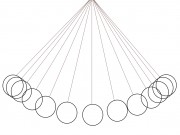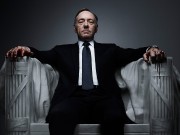The Rabbit Hole offers a respectable and safe perspective on how a couple chooses to move on from the death of their child. John Cameron Mitchell has gone outside of his traditional directorial style and has created a far more mature, almost necessary revelation on how a typical upper mid-class family deals with their loss. Featuring a wonderful ensemble cast, led by Nicole Kidman, this film also includes the introduction of a soon-to-be giant, Miles Teller.
Still unable to cope with the loss of their son Becca (Nicole Kidman) and Howie Corbett (Aaron Eckhart) express their sorrow in drastically different ways. Becca wanting to rid her life of all instances of her dead child, she befriends Jason (Miles Teller ), the young man responsible for hitting their son, understanding that it was all an unavoidable accident. Howie however finds solace in holding on to the objects and videos that remain of their son.
The Rabbit Hole is the Antichrist for the American audience–without the sexual overtones, and more of an emotional reconsideration of their family. The Corbetts, and essentially all the characters in this film are likeable, allowing you to immerse yourself into the difficulties of moving on. Essentially, the main characters have done nothing wrong in this film, which gives you a chance to sympathize with their loss, and even how they choose to move on.
The film is the work of an invisible director, not that John Cameron Mitchell (Hedwig and the Angry Inch, Shortbus) was not a decisive factor in the film’s overall tone and meaning, but in that, the film moves fluidly from scene to scene. Continuing on the idea of fluid movement, Mitchell takes us from first, to second, to third acts, again, in a fluid fashion.
Mitchell also eases us into the lives of the Corbetts, and again eases us in to the important plot points and realizations of the characters. When Becca begins to follow Jason (at least to this reviewer) it is not revealed that Jason was the driver who hit her child until it was implied during their first discussion on a park bench. Rather than soaking into the revelation for the viewer, the film continues along, showing that there are no hard feelings between the characters, and that Becca is intrigued by how Jason is choosing to cope with his incident.
There is an implied idea of role reversals regarding Becca and Howie. Becca chooses to purge the memories of her son, as she left the executive world to be a stay-at-home mother. She sees his face everywhere. Howie, holds on to every last moment, the videos on his phone, the toys in his room. This reversal of more traditional gender roles is never entirely expressed in the film, but should prompt some discussion.
The performances from nearly all talents are incredible, certainly believable. The relationship portrayed between Kidman and Eckhart shows a marriage that is not falling apart, but having difficulty in relating to their choices in finding a new normal. Supporting talents such as Dianne West and Sandra Oh never attempt to usurp the overall themes and focus on the main character.
Miles Teller (who was awarded the Discovery award from the Savannah Film Festival prior to the screening, and well deserving) was an excellent casting choice. His traditional teenage boy persona offers an expressive realism to the film. Typically, we are given pretty-boy/girl actors who never faithfully represent the truth in appearances of younger talents.
The Rabbit Hole is an exceptional film, that is well paced, and wraps up nicely within roughly ninety-minutes. For those who enjoy character studies, particularly well done, adapted from theatre character studies, The Rabbit Hole is an excellent film, that succeeds where many similarly themed films ultimately fail.








